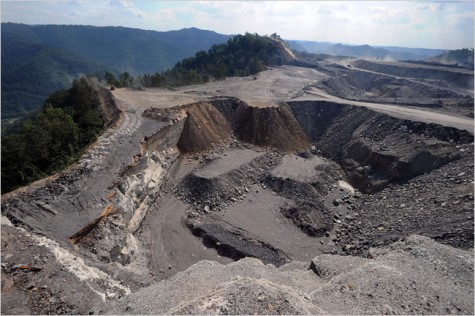Another study confirms mountaintop removal’s impacts on Appalachian water quality
July 14, 2017 by Ken Ward Jr.
Earlier this week, former West Virginia University researcher Michael Hendryx was explaining the findings of his many studies of mountaintop removal’s public health impacts to a National Academy of Sciences panel examining the issue … but this week also saw the publication of yet another report that details the environmental impacts of large-scale strip mining.
The latest study, published in the peer-reviewed journal Environmental Science and Technology, reports that mountaintop removal mining causes many streams and rivers in Appalachia to run consistently saltier for up to 80 percent of the year. The scientists, from the University of Wyoming and Duke University, examined water quality in four watersheds that flow into the Mud River basin, the site of extensive mountaintop removal over several decades.
Fabian Nippgen, assistant professor of ecosystem science and management at the University of Wyoming, explained:
Over time, alkaline salts and other contaminants from the coal residue and crushed rocks in these valley fills leach into nearby streams and rivers, degrading water quality and causing dramatic increases in salinity that are harmful to downstream ecosystems.
These significant alterations are likely to lead to saltier and more perennial streamflows throughout Appalachia, where at least 7 percent of the land has already been disturbed by mountaintop-removal mining. It’s not just the mountains that are being changed.

 Subscribe to the Coal Tattoo
Subscribe to the Coal Tattoo
